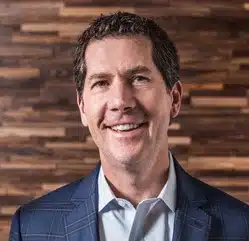

Invited Speaker
Dr Rob Schnieders
Vice President, Strategic Initiatives and Chief of Staff,
Fairfield University
This presentation will focus on the impact of a university-sponsored internship program on the social capital and career aspirations of low-income, traditionally underrepresented associate degree students. The study used a qualitative, phenomenological approach, employing semi-structured interviews to explore how the program influences students’ perceptions of their social networks and career paths. The research examined whether and to what extent university interventions might effectively bridge existing social capital gaps for students from low socioeconomic households. The study also considered the role of various forms of capital, such as aspirational and resistant capital, in shaping students’ experiences and outcomes.
The results of this study have implications for those, particularly universities, seeking to boost social capital and to ensure that students, regardless of backgrounds, have access to advice and connections that can provide encouragement, improve self-efficacy, expand one’s understanding of career opportunities and routes of preparation, and ultimately enhance postgraduate outcomes. While there is truth to the adage “It’s not what you know. It’s who you know,” this study supported that it is also true who one knows informs what one decides to become.
About the presenter:
Rob Schnieders leads strategic initiatives for Fairfield University. In this capacity, he partners across the university as well as external partners with a focus on programs that extend the reach of Fairfield University to new populations, including a new associates degree program and a new campus for the health provfessions. Schnieders also leads Fairfield University’s Office of Online Learning.
He has dedicated his career to applying innovative pedagogy and technology to advance access and learning outcomes for learners at the undergraduate, graduate, professional, and K-12 levels.
Most recently, Schnieders led the strategy for academic support and university guidance for high school students from more than 20 countries studying at Amerigo Education’s network of Catholic high schools in the U.S.
Prior to joining Amerigo, Schnieders was senior associate dean of academic affairs at the University of Chicago Graham School, where he led graduate and professional degree and certificate programs. Schnieders was also the director of national engagement for the Urban Education Institute at the University of Chicago, where he helped lead a 2,000+ student, Pre-K to Grade 12, school network. Schnieders was also a lecturer in the Master’s of Learning and Organizational Change program at Northwestern University’s School of Education and Social Policy.
Previously, Schnieders was the chief learning officer at Deltak/Wiley, where he worked extensively with academic leadership and university faculty in the development and support of innovative, technology-enabled learning experiences. He was also co-founder of AHA! interactive which created online, problem-based learning environments for middle school students.
Schnieders earned a bachelor of science degree in radio, television and film as well as a master of arts in learning sciences from Northwestern University and a doctorate in educational leadership from Fairfield University.
About Our Webinar Series
This event is part of our regular webinar sessions for social capital researchers including PhD/master students. These sessions include invited presentations from prominent scholars as well as presentations by PhD students and experts in professional practice.
For social capital researchers, these sessions are an opportunity to hear about the latest social capital research and insights from scholars working on the concept. They can be a great way to connect with people, to get advice, discuss ideas or issues, get suggestions for literature to read, or you can just listen.
Are you researching social capital and want to present your research? Click here for more information and to submit a proposal.
Generally, presentations can be 20 to 30 mins. The content of your presentation will depend on your research stage.

